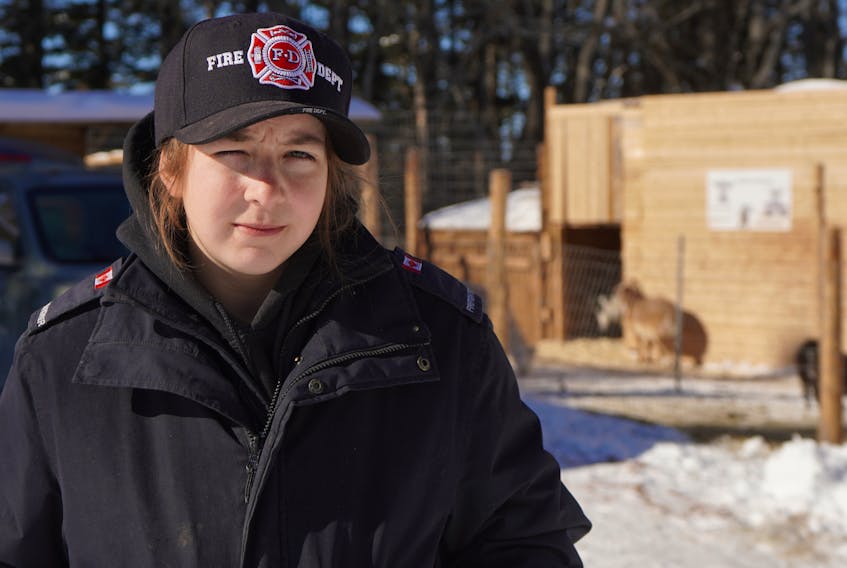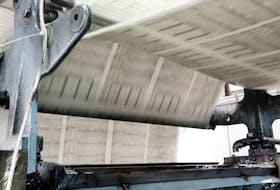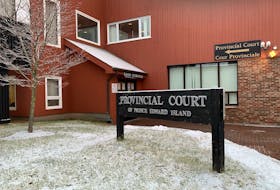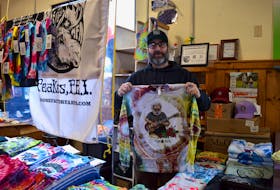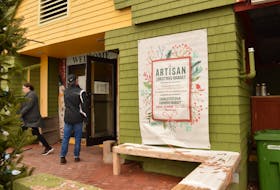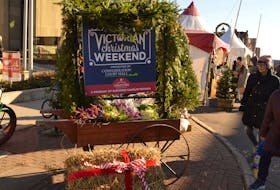OYSTER BED BRIDGE, P.E.I. — Emily Oliver wishes she could have done more to help Bella the horse and Dandelion the cow to fully recover.
"I just kind of feel like I failed these animals," she said. "I can't close my eyes without seeing these animals drop dead in my driveway, knowing I wasn't able to give them a chance."
Now, the owner of Oliver Farm near Oyster Bed Bridge is realizing they didn't necessarily have to be euthanized. On Feb. 5, an inspector from P.E.I.'s Department of Agriculture and Land visited her rescue farm in response to a complaint and told her it was necessary. Oliver was never told there may have been alternatives or that she might have had a say in the matter.
An investigation into the incident is ongoing, according to a Feb. 9 statement from the department to The Guardian.
The farm has a number of animals which Oliver buys to help recover from malnutrition or poor health conditions. If they recover, she works to find a new home for them; otherwise she does what she can to give them a comfortable life.

Her animals are regularly checked on-site by veterinarians. However, a complaint had been filed by someone concerned for the animal's well-being, which resulted in the regulatory inspector paying a visit, Oliver said.
While surveying the farm, the inspector instructed Oliver to have the two animals euthanized due to poor health – a day-of decision Oliver believes he couldn't have had enough information to make, she said.
"He did not contact a vet, he did not have another officer for a second opinion," she said. "It was pretty much, 'You're going to do this, and you have no choice'."
According to P.E.I.'s Animal Welfare Act, both of those criteria are necessary unless the person ordering the euthanasia is an animal protection officer.
PROVINCIAL RULES
Section 21 of P.E.I.'s Animal Welfare Act states if an animal is seized, an animal protection officer may cause it to be euthanized if:
- The owner consents.
- A veterinarian examines it and recommends to the officer that the animal is in distress and incapable of recovery.
- Or, if a veterinarian is unavailable, two other individuals or a single animal protection officer have reasonable grounds to deem the animal as in distress and incapable of recovery.
Section 20 outlines the criteria for seizing animals. Section 22 notes that the officer must serve written notice on euthanasia orders as soon as practicable to the animal owner and the act's director.
As well, Oliver said the inspector didn't provide his full name, provided outdated brochures and Oliver wasn't provided any documentation on the euthanasia order as outlined in the act. She was only provided a verbal report, she said.
Dandelion had arrived at the farm about two weeks before the order. The cow was quite thin and had a mass on its udder, so Oliver was working with a vet to try to help her recover.
"(But) she didn't get a chance at all," Oliver said.

Bella had been on the farm for about two months. The inspector determined the horse had rain rot, a bacterial skin disease that's treatable but contagious, which Oliver argued was just residue stuck in the horse's fur, she said.
Nicole Yard, a horse trainer who teaches at the farm, had worked with Bella on Feb. 4 in preparation for an upcoming riding lesson for children. She spoke to the level of care and commitment Oliver displays toward all of her animals.
"She offers all the time to get the vet out, just for anything," Yard said. "It just doesn't make sense."
Oliver noted she was given until Feb. 9 to euthanize the animals, but the situation had her feeling pressured to do it that day – partly because the inspector instructed her to call a company right away to perform the euthanasia, she said.

The two animals were shot in her driveway, a process Oliver notes was conducted humanely.
"I watched the bullets go through," she said. "I was there 'til the end."
Oliver was also ordered to construct more space for the rest of her animals and to have the horses gain 50 pounds by Feb. 12 for a second inspection, otherwise more animals might be seized, she said.
"Which is pretty unrealistic."
"I watched the bullets go through. I was there 'til the end."
- Emily Oliver
She had veterinarians look over all her animals on Feb. 11, and she has since been learning more about what her rights may have been regarding the inspector's order, including the opportunity to appeal. Her biggest regret is that the outcome was at the expense of two animals she had committed to helping.
"They just needed a little more time and they would have been absolutely awesome," she said.
The Guardian attempted to clarify with the department what its standard inspection procedures are. In the Feb. 9 statement, a representative said the department was choosing not to answer The Guardian's questions for now, stating simply that it "follows the procedures outlined in the law and regulations”.
The questions included: what the difference is between regulatory inspectors and animal protection officers, whether an animal must be seized before a euthanasia order is given, whether a veterinarian's approval or a second opinion is necessary, when a report must be filed with the animal owner and what information must be relayed to them.
The Guardian contacted Oliver's veterinarians – based at the Charlottetown Veterinary Clinic's large animal division – for comment but did not hear back by press time.
AT A GLANCE:
- P.E.I.'s department of agriculture and land is currently conducting a public survey to identify possible gaps with animal welfare policies.
- The survey closed on Monday.
Daniel Brown is a local journalism initiative reporter, a position funded by the federal government.

